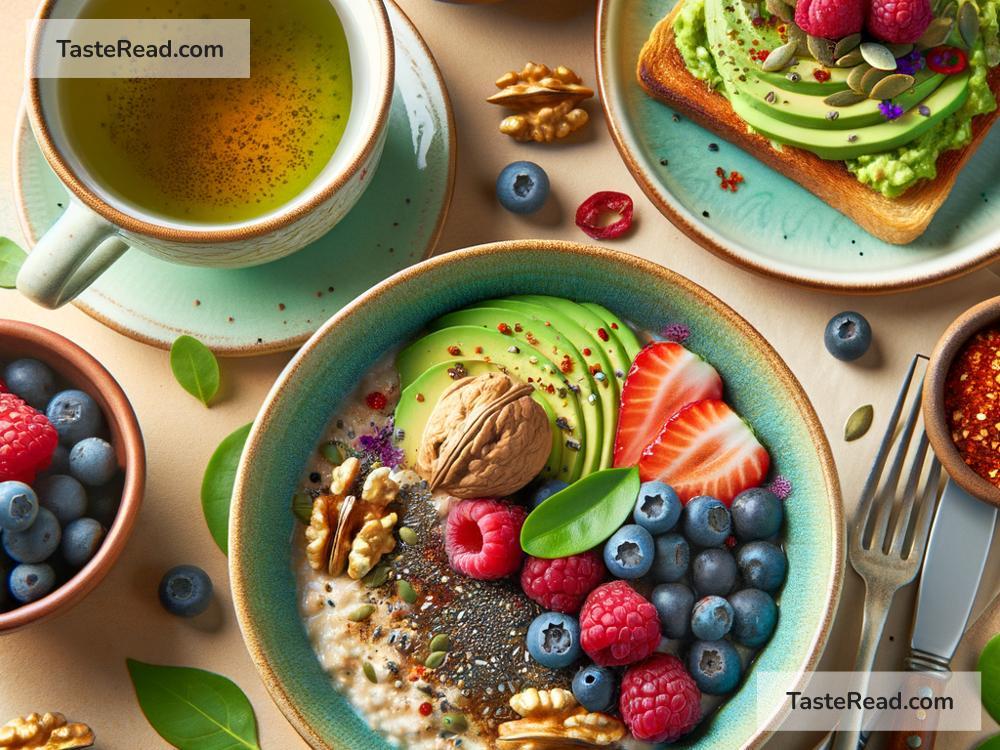Foods That Support Mental Health: Simple Steps to a Healthier Mind
Mental health is just as important as physical health, but it’s something many people overlook. While therapy, exercise, and rest are key to emotional well-being, the foods we eat can also make a big difference. Simply choosing the right food can improve how you feel, help you deal with stress, and even sharpen your brain. Let’s talk about foods that support mental health in simple words.
Why Does Food Matter for Mental Health?
The connection between your brain and your food isn’t just a myth. What you eat provides the building blocks for your brain to function well. Nutritional deficiencies can lead to fatigue, mood swings, and even depression, while a balanced diet can help stabilize your emotions and improve your focus. Think of food as fuel for your brain—it needs the right kind to work properly.
Brain-Friendly Foods
Here are some types of foods that are especially good for mental health. Adding them to your meals doesn’t have to be complicated, and your mind will thank you for it.
1. Leafy Greens are Brain Boosters
Vegetables like spinach, kale, and broccoli are rich in nutrients such as folate and vitamin K. These nutrients are great for your brain and can lower the risk of depression and cognitive decline. If plain leafy greens don’t excite you, add them to smoothies, salads, or stir-fries.
2. Fish with Healthy Fats
Fatty fish like salmon, mackerel, and sardines contain omega-3 fatty acids, which are essential for brain health. Omega-3s can improve memory, boost mood, and reduce anxiety. Don’t like fish? You can try fish oil supplements or look for plant-based sources like walnuts and flaxseeds.
3. Nuts and Seeds for Energy and Focus
Almonds, walnuts, sunflower seeds, and chia seeds are packed with healthy fats, magnesium, and vitamins. These nutrients are important for brain function and can help you stay calm and focused. Nuts and seeds also make a convenient snack—perfect for busy days!
4. Whole Grains for Steady Energy
Your brain loves steady energy, and whole grains like oats, quinoa, and brown rice can keep you going. Unlike sugary snacks, whole grains help maintain your blood sugar levels, preventing energy crashes that can drag down your mood. Try swapping white bread for whole-grain bread or making oatmeal for breakfast.
5. Berries to Brighten Your Day
Blueberries, strawberries, and blackberries aren’t just tasty—they’re packed with antioxidants that protect your brain from stress. These fruits are also known to improve memory and reduce feelings of sadness. Add them to yogurt, oatmeal, or eat them on their own for a healthy treat.
6. Fermented Foods for a Happy Gut
Did you know your gut affects your mood? Fermented foods like yogurt, kimchi, and sauerkraut contain probiotics that promote good gut bacteria. A healthier gut means a happier brain, because the two are closely connected. If you don’t like the taste of fermented foods, probiotic supplements can be an alternative.
7. Dark Chocolate for a Bit of Joy
Good news for chocolate lovers—dark chocolate (with 70% or more cocoa) can improve mental health. It’s rich in antioxidants and can boost serotonin levels, which helps your mood. A square or two a day can be a guilt-free way to treat yourself.
8. Avocados for Stress Relief
Avocados are filled with healthy fats, vitamins, and potassium, which reduce blood pressure and help you stay calm. Enjoy them in sandwiches, salads, or as guacamole—their creamy texture makes any meal special.
9. Eggs for Brain Power
Eggs are a superfood for mental health because they contain choline, important for brain signals and memory. They’re also packed with protein, which provides steady energy and keeps you feeling satisfied. Cook them however you like—scrambled, boiled, or sunny-side up.
10. Herbs and Spices for Calmness
Turmeric, rosemary, saffron, and even cinnamon contain compounds that reduce inflammation and support brain function. Turmeric, for example, has curcumin, which may ease symptoms of depression. Sprinkle these spices into your meals for added flavor and mental-health benefits.
Foods to Avoid
Just as some foods boost mental wellness, others work against it. Too much sugar, fried food, processed snacks, and alcohol can increase stress, lead to energy crashes, or negatively affect your mood. While it’s okay to indulge in small amounts, building your meals around healthy choices is best for long-term mental health.
Simple Tips to Start
You don’t need to overhaul your diet overnight. Start small. Maybe swap chips for nuts or soda for water. Add a handful of spinach to your morning smoothie or choose whole-grain bread instead of white bread. With baby steps, you can slowly create healthy habits.
Healthy Eating Supports Better Living
Nutrition can’t replace therapy, medication, or regular exercise, but it can be a powerful ally in mental health. Adding brain-friendly foods to your diet can help you feel better emotionally, more focused mentally, and less stressed overall. Pay attention to what’s on your plate—it has more power than you might think.
Taking care of your mental health starts with simple, tasty choices. Eat well, feel well, and take small actions every day for a happier, healthier mind!


